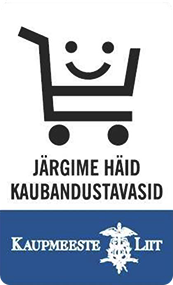
DKK Conference Summary: Ensuring Product Data Quality in the Supply Chain and Future Directions.
DKK Conference Summary: Ensuring Product Data Quality in the Supply Chain and Future Directions.
At the Digital Collaboration Conference held in early February, the focus was on enhancing the quality of product data provided by manufacturers and importers. Discussions also revolved around the opportunities offered by the trade platform Lexi.Market.
Selver’s Supply Chain Director, Tarmo Rei, introduced upcoming changes in the required product data, essential for Selver’s new logistics center. He also highlighted existing challenges in collecting product data.
While Selver previously could overlook faulty or missing data, the necessity for accurate product data has become more critical with the introduction of new warehouse solutions. Selver emphasized the growing list of required data and continued collaboration with Lexi.Market to ensure the availability and adequacy of supplier data.
To make the process of adding data to Lexi.Market smoother, Lexi.Market’s product manager Roland Tammeorg introduced the possibility to automatically transfer the data of products currently in Selver’s active assortment to one’s Lexi.Market account, using the data composition previously submitted to Selver in Excel format. This feature has already been used by the majority of manufacturers and importers, who have then started sending product data and offers to various retail chains via Lexi.Market. When transferring product data from Selver’s database, there is no need to start entering the data on Lexi.Market’s blank product page; it is enough to just check and supplement the transferred data.
Coop’s purchasing director Oliver Rist also shared examples of product data that arrived incorrectly. In September last year, Coop sent an email to suppliers announcing plans to start displaying product information on price tags using pictograms (e.g., lactose-free, gluten-free, made in Estonia, no added sugar, vegan product, etc.). In the notification letter, Coop mentioned that to reduce errors in product information import and to automate the process of sending product information, it would implement Lexi.Market’s information exchange platform. Oliver emphasized in his presentation that the determination of product attributes should be based on the product’s characteristics and the labels on the packaging. For example, it is not appropriate to add that ciders are lactose-free. When determining product characteristics, it should be ensured that the relevant information is also displayed on the packaging.
Furthermore, it was revealed that notifications of changes to product information, such as changes in product name, packaging and bulk packaging sizes, product ingredients, or nutritional claims, do not always arrive on time. Here, too, Lexi.Market serves as a good tool for suppliers, keeping track of which retail chains should be notified of changes to product information later.
During a panel discussion, the possibility of displaying detailed sales information for each supplier’s products was considered, where Lexi.Market could reflect the quantities of products sold in various stores with day-to-day accuracy. Such a view will soon be available to Lexi.Market Standard package users.
The Estonian Traders Association provided an overview of the upcoming Due Diligence Directive, which will introduce additional requirements for large companies, which in turn affect their partners and suppliers. As soon as a few more details of the directive are agreed upon at the EU level, the Traders Association will organize an information day on the Due Diligence Directive. You can register for the waiting list at: info@kaupmeesteliit.ee
Feedback from conference participants highlighted a strong interest in the various functions of Lexi.Market, especially the ability to send product information and offers to retail chains that do not use Lexi.Market themselves.
Several times it was mentioned that there is a desire to hear more about the user stories of Lexi.Market users. For example, at the conference, the HoReCa sales manager of Estonian Bakery, Sille Samm, talked about how she uses the platform daily to send product information and price lists to her couple hundred clients, thus saving a lot of time and reducing errors.
Given the high interest in user experiences with Lexi.Market, we plan to organize a Meeting Forum for experienced and new users to exchange experiences, share best practices, and discuss other sales-related topics. You will also be among the first to learn about updates coming to Lexi.Market. If you are interested in participating in the Experience Forum with a limited number of participants, please write to helen@lexi.market
Among all conference feedback providers, we raffled off a Lexi.Market backpack. This time, the lucky winner was Kadri from Abestock.
By using the Lexi.Market Standard package, product information and offers can be sent to the email of all major Estonian retail chain purchasing managers, regardless of whether the retail chain is a Lexi.Market user or not.

Signing up for the Standard package, transferring product data, and the first month for data organization is free. To join the Standard package, write to: helen@lexi.market
As of February, Lexi.Market had over 300 user accounts.
A total of over 10,000 offers have been sent out to all major retail chains. Which included the retail chains’ automatically filled product information form.
You can find the conference photo gallery on Lexi.Market’s Facebook page. See you at the next Digital Collaboration Conference!






